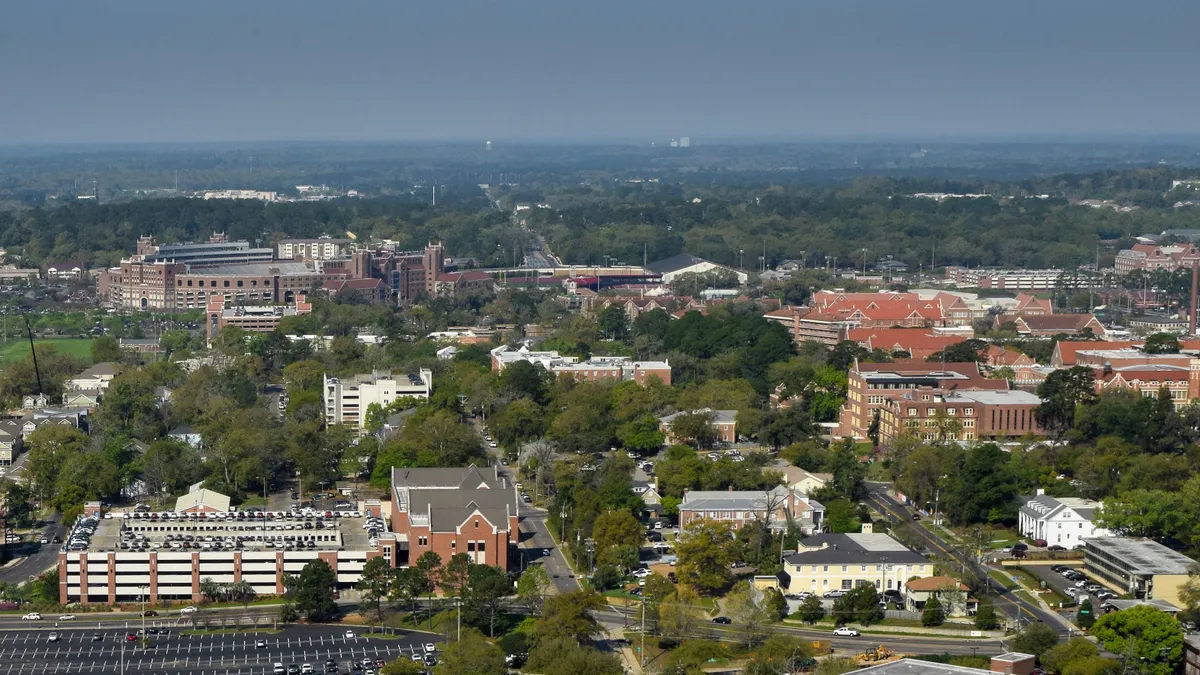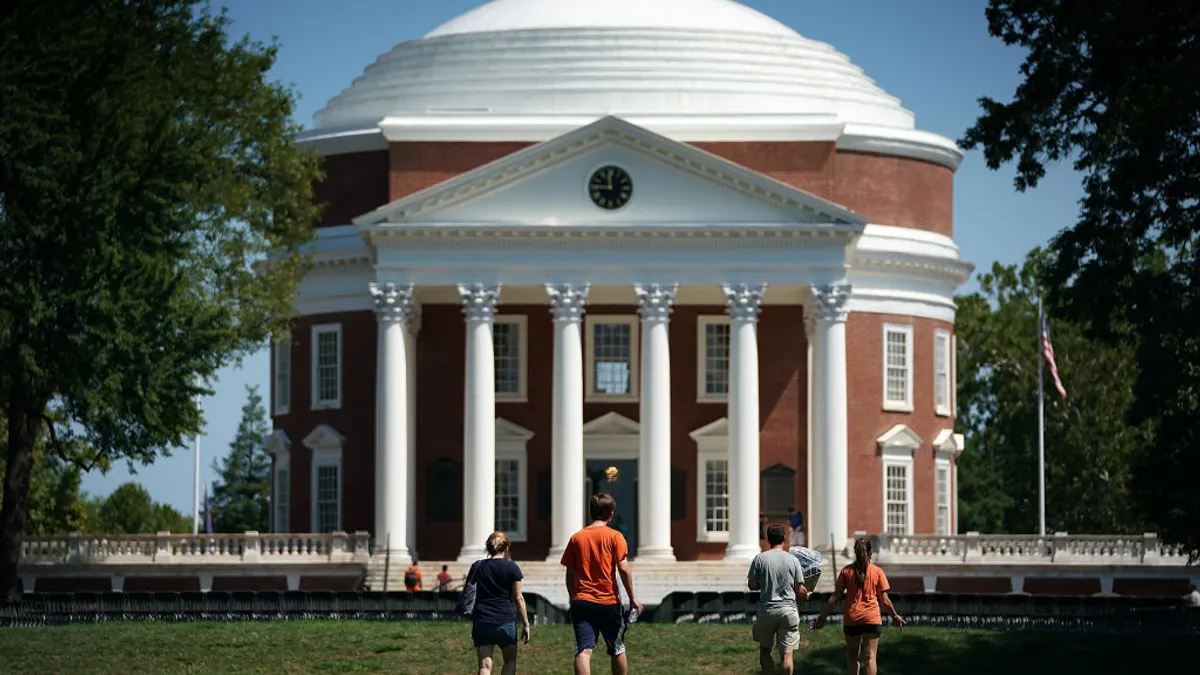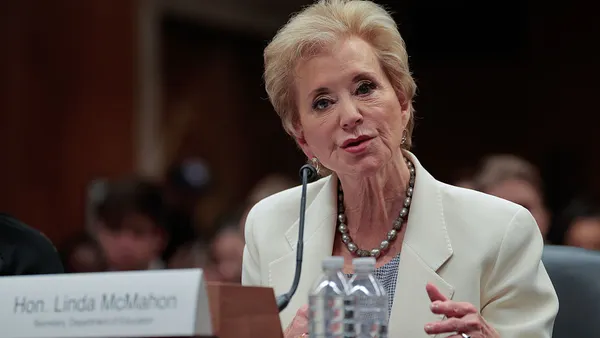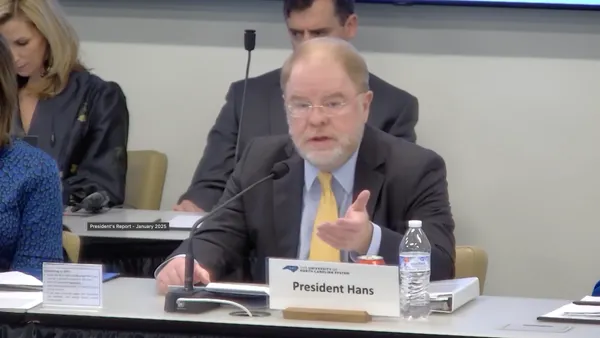Dive Brief:
- The Obama administration has been urging states to develop better systems for assessing claims for-profit colleges and universities make about their graduates’ job placement rates, but many state offices don’t have the staff or the money to significantly improve oversight.
- Inside Higher Ed reports state agencies are primarily responsible for consumer protection and job placement rates are one way to assess how well schools perform, but after the Department of Education tried to create a methodology for calculating these rates and gave up, states and accreditors have been left to develop their own.
- Some states have created new methods, others have followed the lead of accreditors, and for-profit colleges have been stuck in the middle — Devry is challenging an FTC lawsuit based on this inconsistency.
Dive Insight:
Some have criticized the increased pressure on states to step up their regulation of for-profit institutions as an overreach of federal power. One of the areas in which the executive branch is seeking more power from Congress is in setting student achievement standards with accreditors. That would likely include job placement rates, though the administration’s prior failure to settle on a methodology could be repeated.
The Republican leader of the Senate education committee, Lamar Alexander, has been loathe to approve targeted regulation that hold only for-profit colleges accountable. If Republicans maintain control of Congress or take the White House this election year, any new oversight likely will be applied across the board.











